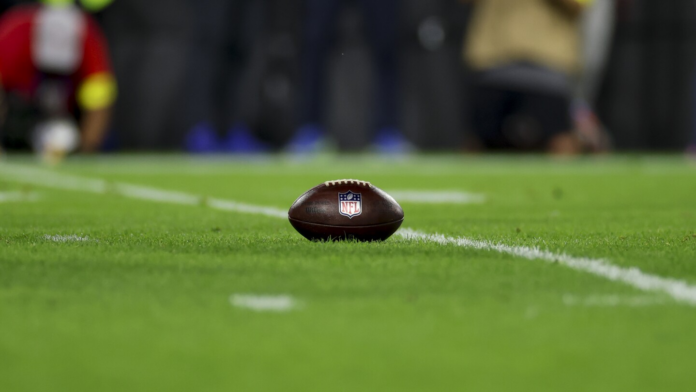The headline is an attention-grabber. The story suggests it’s all a big, fat nothingburger.
Via Doug Greenberg of ESPN.com, the NFL sent a memo on Thursday to team officials regarding prohibitions on certain prop bets. However, as the article later explains, the prop bets mentioned in the memo are not generally offered by legal U.S. sportsbooks.
Per Greenberg, the memo lists various prohibited wager categories, from betting on injuries to fan misconduct to penalties to certain predetermined events. (That said, the memo would seem to cover easily-rigged wagers on the color of the Gatorade dumped on the winning coach at the Super Bowl.)
In the memo, the league also explains that it is “actively engaged with both state lawmakers and regulators, as well as with our sports betting partners, to limit — and where possible prohibited altogether — prop bets in the NFL.”
As Greenberg writes, “it is not anticipated that Thursday’s memo will force any changes to [the sportsbooks’] offerings.”
The memo also says that it considers the use of prediction markets (e.g., Kalshi and Polymarket) to be “prohibited gambling activity.”
To be clear, our interpretation of the memo is based only on Greenberg’s characterization of it. If/when we get a copy of the memo, we’ll supplement our take on it, if needed.
For now, however, it appears that the portion of the memo regarding prop bets is a largely hollow gesture aimed at doing something at a time when many are looking to sports leagues to do anything to address the kinds of wagers that can be directly influenced by one player — and that can spawn inside information that can be misused by those who know whether and to what extent a player is likely to hit the “under” on prop bets tied to his performance.
It’s one thing to legalize, and to profit from, big-picture wagers regarding which team wins (straight up or against the spread) and whether the total points will exceed (or fall short of) the game-by-game magic number. Prop bets, which truly are the crack cocaine of legalized betting (and, when lumped into three-leg parlays, easy money for the sportsbooks), set the stage for misconduct by those who have specific knowledge about players and game plans.
Those whose nests are feathered by gambling money will respond to that take by saying, for instance, “If bets like these are prohibited, bettors will resort to bookies.” The easy response is this: “Let them.” Specifically, let them put down the cell-phone device that allows immediate wagering and tiptoe to the wrong side of the tracks in order to place prop bets. And let’s see how many of them actually will.
The biggest problem with legalized gambling is that it has also become normalized. Those who would never even commence the process of finding a bookie for fear of “breaking the law” can now make a bet as easily as ordering a new pair of shoes.
And, for those who aren’t careful (or who develop an addiction), money that would otherwise go to shoes and clothes and food and lodging will be gone forever.
That’s the point that most seem to be missing. It’s not nearly enough to print “1-800-GAMBLER” in the fine print of the ads. People need to understand the realities of the game. Most will eventually lose money. Some will lose a lot of money.
It’s not a device for escaping financial jeopardy. It’s not a path to prosperity. The odds are ultimately against you, as evidenced by the fact that the major sportsbooks are thriving, multibillion-dollar businesses.


